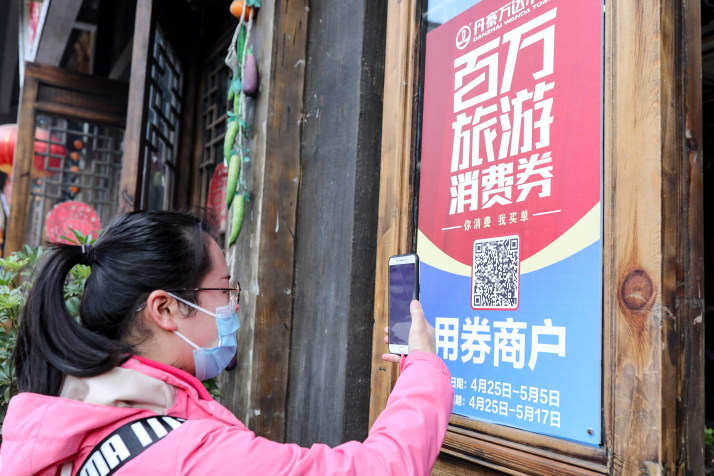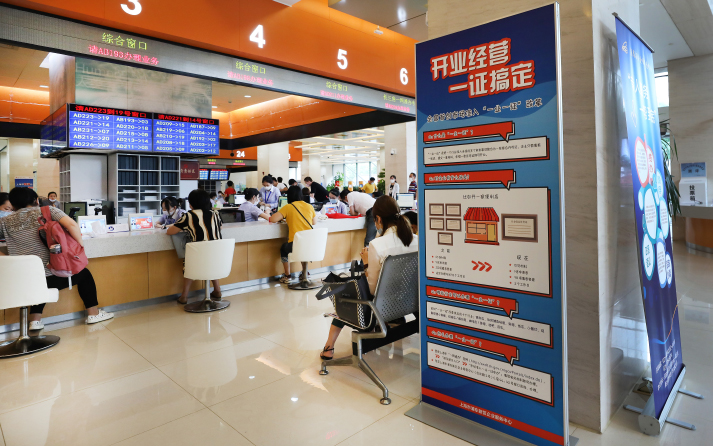|
||||||||||
| Home Nation World Business Opinion Lifestyle ChinAfrica Multimedia Columnists Documents Special Reports |
|
||||||||||
| Home Nation World Business Opinion Lifestyle ChinAfrica Multimedia Columnists Documents Special Reports |
| ChinAfrica |
| The Chinese Government gives craftsmen and traders a much-needed leg up after the epidemic |
| Small businesses are rapidly developing in China. On July 14, the Ministry of Commerce and six central departments has issued a joint statement with a view to promoting small businesses through digital upgrading and Internet platforms |
| By Ge Lijun VOL.12 September ·2020-09-10 |

Small businesses are rapidly developing in China. On July 14, the Ministry of Commerce and six central departments issued a joint statement with a view to promoting small businesses through digital upgrading and Internet platforms.
Small businesses have always been close to consumers and they play a crucial role in fostering employment, consumption and economic vitality. According to statistics from the Fourth National Economic Census, the number of registered craftsmen and traders in China has reached 83.53 million, generating more than 200 million jobs.
Small businesses have recently experienced a digital transition in China and the government has taken various measures to help them overcome hurdles caused by the COVID-19 epidemic.

Online migration
According to WeChat Pay, from January to May, the number of small businesses nationwide increased 2.36 times compared with the same period last year, while the number of transactions increased fivefold. The epidemic has wreaked havoc on sales and the sector is in dire need of digitalization. Chinese e-commerce platforms, such as Alibaba, JD.com and Meituan, have thus offered their support throughout the first quarter.
In Shanghai, for example, Xiaoquexing, a massage parlor, turned to Meituan. Its turnover has skyrocketed and is eight to 10 times higher than other similar businesses. Thanks to digitalization, the online booking rate now exceeds 90 percent.
In 2019, Meituan hosted millions of small businesses from more than 260 categories of services, enabling orders, bookings and payments through the platform. Total sales transactions exceeded 100 billion yuan ($14.41 billion).
At the same time, smartphone apps, such as WeChat, Alipay and Douyin have made substantial headway and have developed specific functions. WeChat helps small businesses create their own online space where merchants can post their e-marketing activities such as announcements of new products, promotions or VIP rates.
Mobile payment has also contributed to the economic recovery of small businesses. According to the data from the Ministry of Commerce, from January to May, 28 provinces and more than 170 cities nationwide issued more than 19 billion yuan ($2.7 billion) in vouchers to be used on mobile payment platforms. Starting from July, Alipay has pooled banks and merchants and issued more than 10 billion yuan ($1.44 billion) worth of consumption vouchers. According to Alibaba Group, a voucher generates on average 10 times more in actual consumption, and small businesses have become the main beneficiaries, as 90 percent of consumption vouchers are intended for them. As a result, cash flows have increased by more than 70 percent, exceeding the levels reached before the epidemic.
Since July 26, the Beijing Municipality has issued 1.5 million vouchers to support and revitalize small businesses. Consumers can retrieve them from the JD.com app. On August 8, this scheme was extended in order to sustain the resumption of commercial activities and consumer spending. Some 3,000 companies are involved, with 4,000 brands and flagship stores and more than 10,000 stores.
"Using the vouchers is very easy. Payment is made via the JD.com system. This allows consumers to save money. As for traders, they attract more customers," Li Jing, a young professional from Beijing, told ChinAfrica. She added that government-issued vouchers are typically 10 to 40 yuan apiece ($1.4 to 5.77). In addition, vouchers of 5 to 20 yuan ($0.72 to 2.88) can be directly issued by small businesses.
The voucher issuance aims at stimulating spending while accelerating the digital transformation of small businesses, Ma Zihui, PhD in economics from the Hong Kong University of Science and Technology, told International Business Daily.

Local is better
Currently, small businesses are not only facing a number of hurdles, in particular due to their poor ability to overcome risks, but also facing costly bank loans and complex registration procedures. The statement from the Ministry of Commerce insists that supportive measures intended for craftsmen and traders be implemented in practice, such as tax cuts and social security rebates, financial support, better business environment, etc.
Maoming, a city in southern Guangdong Province, has recently used a big data platform to implement various tailor-made tax policies and help businesses and the market recover. A local company, Yuanji Seafood City, has already benefited from these measures. In the first half of the year, its turnover halved compared to the same period in 2019 as a direct result of the epidemic.
"Fortunately, we were eligible for the new tax scheme, soon enough to get through a rough patch," Deng Fenggan, the company's manager, told Consumption Daily. The company was able to obtain a tax rebate worth 26,700 yuan ($3,842) on social security contributions from January to July. "Four months after resuming work, our activity is back to 90 percent," Deng explained.
Another example, in Shanghai this time: to open a convenience store there, five types of approvals were needed previously, but only one is now required. In 2019, the Pudong New Economic Zone in Shanghai piloted an initiative called "one sector, one license," which covered 10 areas of businesses. The reform is currently being rolled out in 43 categories of retail businesses, in particular convenience stores, gyms, hotels, drugstores and restaurants.
In this context of changing consumption patterns coupled with the acceleration of digital transformation, the small business economy is entering the 2.0 era, enabling online and offline integration, said Fu Yifu, Director of the financial research center of the Suning Institute of Finance, in an article published in China Business Herald.
(Print Edition Title: Digitalizing Small Businesses)
Comments to glj@chinafrica.cn
| About Us | Contact Us | Advertise with Us | Subscribe |
| Copyright Beijing Review All rights reserved 京ICP备08005356号-5 京公网安备110102005860号 |